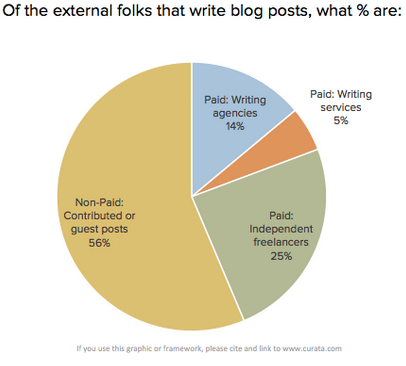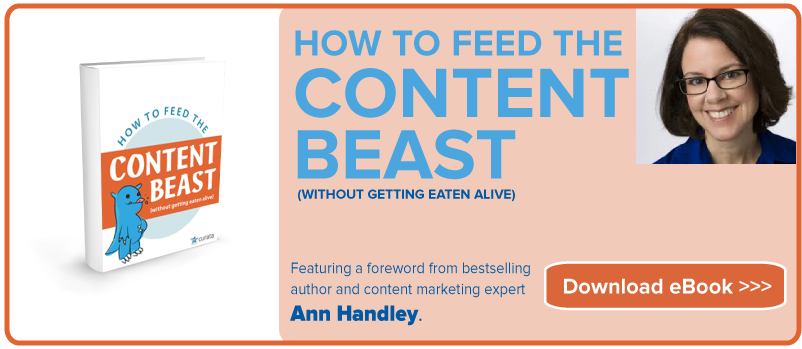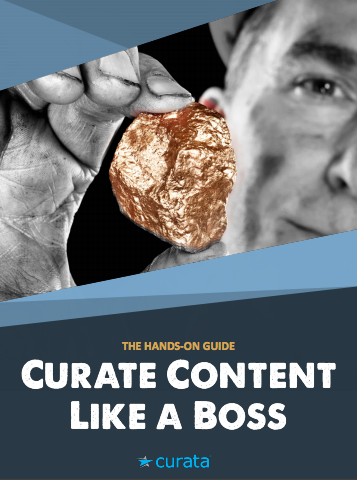- Share SEO for Content Marketing: How Do Links Impact Google Website Rankings? on Facebook
- Share SEO for Content Marketing: How Do Links Impact Google Website Rankings? on Twitter
- Share SEO for Content Marketing: How Do Links Impact Google Website Rankings? on Linkedin
- Share SEO for Content Marketing: How Do Links Impact Google Website Rankings? via email
 If you ever ranked for a popular phrase, you know: search engines can bring a steady stream of visitors that lasts for months or even years. Search can be a powerful, durable source of traffic for all of your content initiatives.
If you ever ranked for a popular phrase, you know: search engines can bring a steady stream of visitors that lasts for months or even years. Search can be a powerful, durable source of traffic for all of your content initiatives.
Although there are other places readers can locate your content, such as social media promotions and email newsletters, search engine optimization (SEO) should be considered every time we create a page.
This guide will tell you how inbound links impact google search engine rankings and provide you with four ways to generate these links as part of your content marketing activities.
Google uses hundreds of other factors to rank websites in search results, but links are the single most important consideration. When a web page has several incoming links, Google sees this as a positive indicator of the page’s relevance and credibility.
But, not all links carry the same weight.
How Do Links Impact SEO?
First, watch at this video we put together at Orbit Media for a quick, 3-minute explanation of Google website rank.
To recap, these are some of the factors that impact a link’s value:
- An incoming link from a website that Google considers to be popular and trustworthy (because this site has many other sites linking to it) means a lot more than a link from a brand new site with very few inbound links.
- Links from sites related to your product or topic are usually more valuable than links on unrelated sites because related sites provide more topic relevance.
- Link text (also called anchor text) matters. Many websites hyperlink phrases like www.example.com or “click here” that don’t contain any useful keywords (and frankly, internet readers know by now to click on the hyperlink). However, when link text uses a relevant keyword or phrase, it’s a better indication to Google of what the page is about.
- The number of links on a page also makes a difference. When a page links to lots of web pages, Google divides the value of the links by the number of links on the page. That means that the value of a link among many other links is diluted compared to the value of a link on a page without lots of other links. Too much repetition of the same keyword has a similar effect as it can make the page look spammy.
Social signals such as retweets or other social media sharing can positively impact rank but that’s different from links. Links from Twitter or Facebook don’t impact link popularity. And this is a good thing, because otherwise companies could rise to the top of search results by spamming social media.
Want to find out the value of a given link? Open Site Explorer is essentially a search engine for links and quantifies the “domain authority” of links on a scale of 1 to 100. You could also use the site to scope out the competition as you’re conducting keyword research. However, the free version of Open Site Explorer only allows you to conduct a few searches for per day and only for some links.
How to Win Links
You’re not going to outsmart Google, so don’t even try. The idea isn’t to be sneaky or find tricks. The idea is to be a legitimately relevant website with lots of content that’s worth linking to. Any tactic that doesn’t have this philosophy at it’s core is probably useless and likely harmful.
There are many perfectly appropriate and ethical ways to boost your link building and SEO without resorting to black hat SEO practices. And many of these strategies also have benefits beyond attracting links. Here’s a list to get you started.
1. Produce high-quality content.
When you publish useful, original content, links happen organically because others are naturally drawn to it and want to share it. You can make a concerted effort to create “linkable” content such as a webpage or blog post (preferably not a PDF) that includes innovative research, a great tool or a checklist offering valuable information. When you publish targeted, high-caliber content, you increase your odds of gaining links.
Added Benefit: Not only does great content attract links but it can also help convert visitors into customers.
2. Write guest blog posts.
 Contributing guest blog posts to other sites in your niche is a great way to generate relevant links. You can typically include a link in your author bio and you may find ways to link to other posts on your site within the body of the post. In fact, you’re reading a guest post right now!
Contributing guest blog posts to other sites in your niche is a great way to generate relevant links. You can typically include a link in your author bio and you may find ways to link to other posts on your site within the body of the post. In fact, you’re reading a guest post right now!
As you can see in the research from Curata’s blogging study below, 56% of business bloggers are using guest posts as a major source of external content.
But, Keep in mind that as guest blogging has gained popularity, it’s become more competitive. Crafting a great post and pitching that post to a high-quality site is extremely time-consuming. The best sites will push you to work very very hard for them.
Added Benefit: In addition to building links, guest blogging can help you attract new readers and build rapport with others in your industry.
3. Seek out media mentions.
 Online press releases don’t generate high-quality links, but actual mentions in credible media outlets do. Not every media mention guarantees a link, but it’s always a good idea to ask for a link when pitching a story to journalists.
Online press releases don’t generate high-quality links, but actual mentions in credible media outlets do. Not every media mention guarantees a link, but it’s always a good idea to ask for a link when pitching a story to journalists.
Remember that relevance is the name of the game, so if you run a blog about hockey memorabilia it’s probably not that helpful to get a link from an insurance website. Be strategic in the media mentions you cultivate.
Added Benefit: Good public relations helps build links and creates public awareness.
4. Pursue Existing Link Opportunities
 If you’ve been around for awhile, then you probably have existing relationships that might lend themselves to a link. Conduct a Google search to identify websites that already mention your business but don’t include a link. For instance, if you belong to a professional association or chamber, you could request a link from their website.
If you’ve been around for awhile, then you probably have existing relationships that might lend themselves to a link. Conduct a Google search to identify websites that already mention your business but don’t include a link. For instance, if you belong to a professional association or chamber, you could request a link from their website.
Added Benefit: Reaching out to request a link is also an opportunity to solidify a relationship and remind others of your existence. Just remember to be polite and courteous in your ask.
Putting it All Together
Now that you understand why and how links matter to Google, you’re likely to see the web very differently than you did before. Of course, Google is always evolving their search algorithms; but, the cool part is, they want you to know how to create relevant, useful content and, by extension, gain good search traffic. In this video, Google’s own Matt Cutts explains PageRank and links (skip to minute 7:30).
To learn more about creating content that resonates with audiences and ranks high in search engine results, download Curata’s free eBook, How to Feed the Content Beast.








